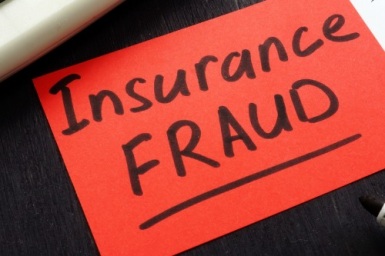
A woman from Kent has been sentenced for alleging she had terminal cancer in an attempt to defraud her insurer out of over £130,000.
Gemma Goodwin, 38, of Dartford, forged medical documents stating that she had breast, lung and cervical cancer, and was given just one to two years remaining to live.
She was sentenced to two years imprisonment suspended for two years and a six-month electronically-tagged curfew on Tuesday 9 November 2021 at Woolwich Crown Court.
Detective Constable Kim Negus, from the City of London Police’s Insurance Fraud Enforcement Department (IFED), said:
“Goodwin is a deceitful and shameless individual, exploiting a devastating illness for personal financial gain. What’s worse is that this is not the first time she has attempted to cheat the system, having previously been convicted for fraudulently claiming housing and long-term illness benefits.
“Goodwin clearly has no remorse when it comes to her fraudulent activity, but she should know by now that the truth will always be uncovered in the end.”
In 2015, Goodwin took out a life insurance policy with a leading UK insurer. This policy included a terminal illness benefit, meaning that the policyholder is compensated with the equivalent death benefit in the event that they are diagnosed with a terminal condition carrying a life expectancy of less than twelve months.
Three years later, Goodwin emailed the insurer to report that she had been diagnosed with terminal cancer and had approximately one year to live. In her correspondence with her insurer, the mother-of-three asked how she could claim in order to support her children and to make funeral arrangements.
Goodwin contacted the insurance company two months after her initial report, stating that she did not wish to proceed with the claim; however, she did want to nominate a beneficiary to manage the claim upon her death. A friend from work was declared for this role.
With a beneficiary in place, Goodwin submitted the relevant forms for the claim to her insurer, including a letter from a local hospital confirming her diagnosis and prognosis: stage two breast cancer, stage two cervical cancer and stage four lung cancer, with a life expectancy of one to two years.
In response to these documents, the insurer requested details of Goodwin’s medical condition and history directly from the NHS. This request prompted Goodwin to cancel her claim. The relevant department at the hospital confirmed that Goodwin was not a current or past patient.
In January 2019 – five months after the insurance company discovered that the medical records had been forged – Goodwin contacted her insurer once again to report that she has just two to three months left to live. Goodwin sent multiple correspondences to her insurer during the year to make changes to her policy, including removing her nominated beneficiary. At the end of 2019, the insurer wrote to Goodwin informing her that the policy had been cancelled with immediate effect due to evidence suggesting that the claim was fraudulent.
The nominated beneficiary was interviewed by IFED, explaining to officers that she had met Goodwin in 2012 through work and the pair soon became friends. Over the course of their seven-year friendship, Goodwin repeatedly lied to her friend about the state of her health, claiming to have both lupus and various forms of cancer. The friend revealed that Goodwin had even shaved her head at one point and looked into travelling to the US to receive treatment.
Further investigation found that this was not the only person that Goodwin had convinced, as an online fundraising page had been created by another friend for Goodwin. Of the £2,033 raised through the page, Goodwin withdrew £1,961 to use for a holiday with her children.
When later interviewed, Goodwin admitted to committing the fraud, claiming that she enjoyed the attention she received from being ‘ill’. Goodwin also declared that she had typed the letter from the hospital herself, using an internet search engine to find a doctor’s name to sign the form with.

